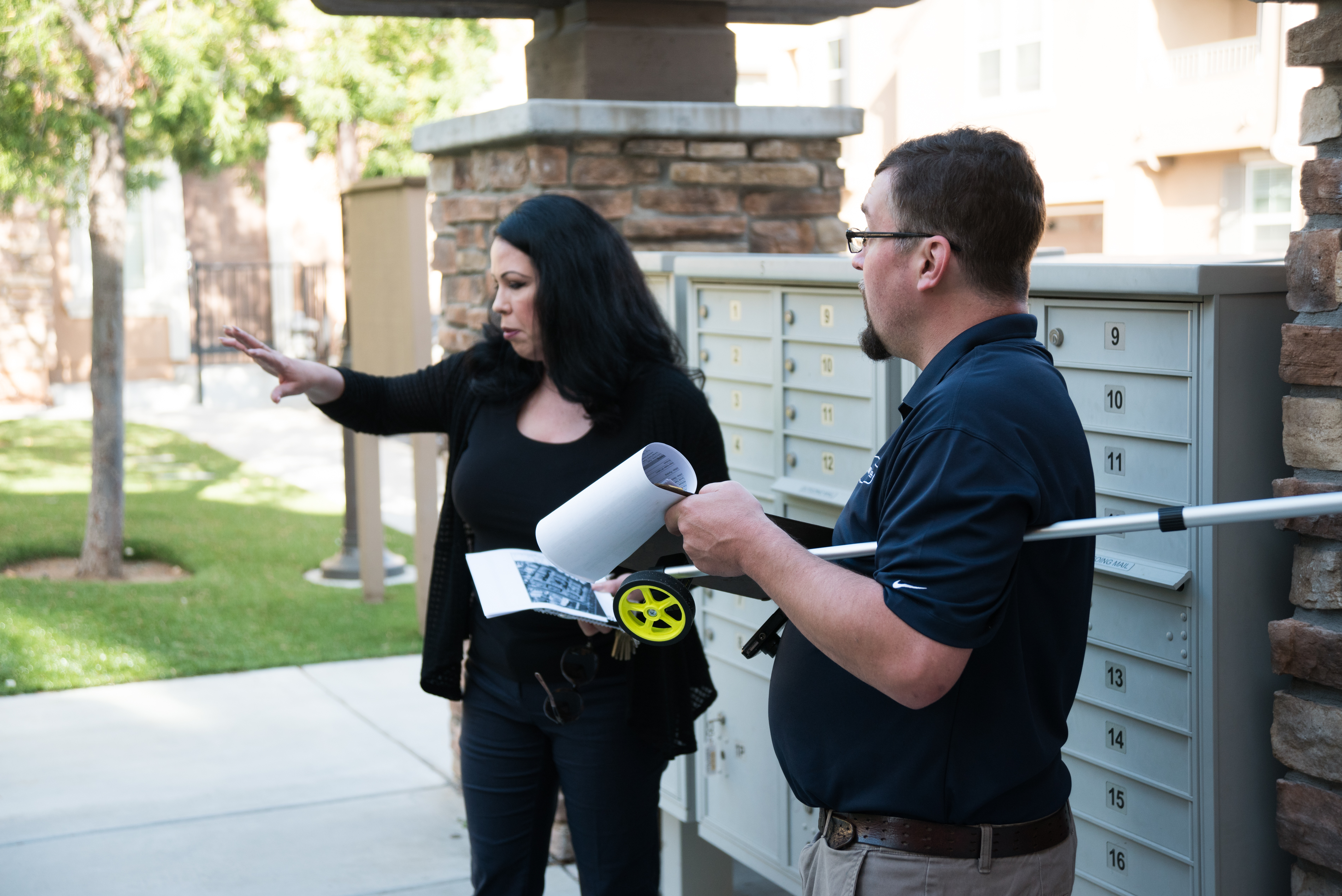
In today’s chaotic world, we are all searching for more meaning – whether it’s in our personal or professional lives, or both. Relevancy is important, and our impact is the measurement of that relevancy.
While I could give you plenty of advice on how to take a vision quest to find personal fulfillment, in this space, we’ll stick to property management. And in that case, the question to ask is: How can we create a greater impact for the communities we serve?
For me, I look at the world through the view of my crystal ball – the reserve study. I think about the budget and planning process as an opportunity to build trust with your boards and help them plan for their future.
Since my perspective is a bit biased, we decided to talk with some industry pros and get their take on how to make a greater impact by using the budget and planning process as a catalyst.
First, we spoke with Melissa Brown, PCAM. She is an industry leader with 18 years of experience. She is currently the Regional Director for Avalon Management Group. We also spoke with Autrey Porter III, CCAM. He has 6 years of management experience and currently serves as a Community Manager for Menas Realty Company.
Here are a few tips and insights from that we hope you find useful.
1. Set expectations
The budgeting process is a chance for you to help set expectations for the community, says Brown. Have an open conversation with your board about what they expect. A good place to start is by looking at the disbursement schedule on your current reserve study. Are you expecting to replace or repair the scheduled expenditures? The board should get crystal clear on its intentions and expectations so no one is surprised.
For example, if there is a budget shortfall and a dues increase is not passed, what are you willing to give up? Are you going to cut services? Will you cut reserve funding? Have an open conversation about it so everyone is on the same page.
Porter suggests it’s also a good thing to “remind your board that the purpose of the reserve fund is to spend those funds on the scheduled expenditures.” That’s what they have been reserving for – to take care of replacements as they are needed, and deferring generally makes things more expensive. Sometimes as a manager you have to act like a Sherpa and help your board members climb the mountain.
2. Use your reserve study
Your property’s reserve study is a great tool to cut through the apathy, indecision, and arguments you may find on your boards. It’s got the facts you need to nudge your board to move in one direction or another and set a budget that works.
Melissa Brown, Regional Director for Avalon Management Group in San Marcos, California, says, “Use the reserve study document as it was meant to be used – as a planning tool. It’s not just a one-board meeting discussion.”
Take a look at your list of components. Make note of the ones that are coming due the next year at the time of budget and alert your boards to what’s ahead so they know what’s coming for repair or replacement the following year.
“Reserve studies and maintenance manuals are the two most undervalued tools we have,” Brown says. “Most managers put their reserve study in a file cabinet and they never look at it again. I bring mine with me to every meeting.”
It can also help you to maximize your investment yields, as it will provide you with a cash flow of funds necessary for both the short term and long term. Make sure to bring it to your board meetings, and refer to it when looking at your finances.
3. Start early
When you’re setting a budget, the earlier you start working on it, the more bang for your buck you will get. “I like to get the reserve study started in June or July – six months in advance,” Brown says. If you’re waiting to start the budgeting process until September or October for the forthcoming year, you’re already behind the eight ball.
To get enough time to crunch the numbers and make the best decisions, we recommend starting the budgeting process six months in advance – in June or July for fiscal year December budgets. That way you can finalize the budget in September or October for the following year. This means getting your bids and selecting a vendor ahead of time.
It’s better to take your time, and plan accordingly, bringing in experts where needed to review some of the larger category types like building envelopes, mechanical equipment, and piping replacement plans. Remember, the reserve study is only as good as the investment of time made by all the stakeholders.
4. Know your board
Like any nonprofit organization, HOA boards are made up of volunteers with many different personalities driven by different motivations. The more you can get to know your board members – really understand what makes them tick – the better. Use them all to your advantage. Start with the vision and the end in mind. Get them on board to take ownership and assign tasks based on individuals’ strengths.
“Find out if they are big picture people or obsessed with details and minutia,” says Porter. “Understand what level they operate on so you can meet them where they are at.”
You have to be a chameleon at times to help your boards get things done, but that’s okay. No one said herding cats was easy.
“Know who the players are,” says Brown. “Educate those that want it. Some don’t, but find those people who are receptive and willing to work with you.”
When it doesn’t go your way, don’t take it personally. “Some battles you just can’t win,” Brown says. “Do your best to advise them and then just move on.”
Remember, we are all in this together with a common goal – creating and maintaining a great place to live.
5. Build trust with the facts
Back up all your assertions with facts when you’re trying to convince your board to move in one direction or another. The facts are the language they ultimately will respond to.
“Don’t use cookie cutter answers,” says Porter. “Have the data to back it up.”
“The budget planning process is an opportunity to build trust with your client,” he says. “If you create a solid budget and if at year’s end 90% of your numbers are right on, it helps build confidence.”
Roll up your sleeves and get as involved with your association as the board will let you. When your communication is fact-based, it demonstrates you know what you’re talking about, builds trust, and lets you get more hands-on with boards that may be hesitant. You become a “middle man with a purpose,” Porter says, helping assimilate the data to tell a story that the board can get behind.
When you do this, you may even find more meaning and joy in your job, Porter says.
6. Bring backup
If you’re advocating for a dues increase or replacement project and having trouble swaying your board, and it’s beyond your knowledge base, don’t be afraid to bring in an expert. Brown says she does this, as she needs to. For example, are there options to pay for component replacements over an extended period? What is the cost-benefit of phasing a project compared to a one-time total replacement?
An expert can add credibility, drill down into details, and let board members ask questions on a deeper level. Remember, the board is protected by the business judgment rule, so it’s always best to rely on the experts. And when in doubt, record anything of importance in the minutes – especially when boards decide to ignore your recommendations or expert advice.
As the manager, you’re the conductor of the orchestra, committed to helping the board maintain, upkeep, and protect. But you can’t know everything. So, don’t be afraid to bring in experts when you need them.
Many reserve study companies will send a reserve analyst to your board meetings to answer questions and ensure everyone understands the reserve study. Why not bring in an expert to give you budgeting advice and guidance? Make sure to ask your reserve analyst what happens if a component does not last as long as the anticipated service life. How will these expenditures impact future funding projections?
So that’s it! I hope these tips are useful and give you an opportunity to build trust with your boards, and create a viable plan for their future. As for you, I hope the budget and planning process helps you work with a greater purpose. When you do that, you’ll find you’ll have a greater impact on the communities you serve. And I hope that brings you more pleasure and gratification in your job.

